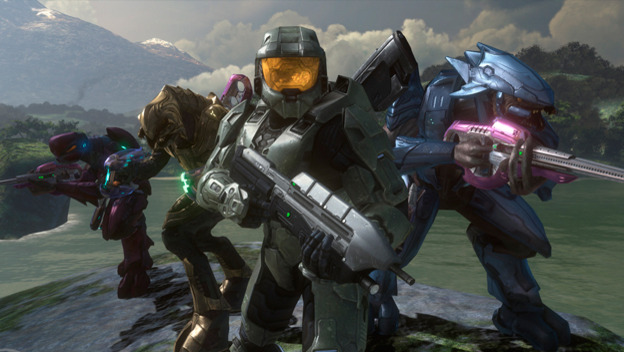With the gaming industry in a rumor-driven uproar over the next generation of consoles, we, the gaming community, can find solace in at least one fact: Mammoth series like Call of Duty—and virtually every sports franchise—will release a new title every year until Armageddon. But is this necessarily a good thing?
Now, I’m not asking if you’re a fan of the games, because frankly, it doesn’t matter. In fact, you’re worse off if you are.
See, these releases aren’t the same as your everyday sequel, and for one reason: They’re multiplayer dependent. CoD campaigns are basically haphazardly made appetizers at this point. Moreover, with each new release, the majority of the online player base will move on to the new game—whether you like it or not. Although some may cling to the predecessor simply out of preference, you’re going to be left with one wasteland of a multiplayer unless you shell out the cash to stay current. And trust me; developers know this.
They know that the players from Black Ops were going to make the shift to Black Ops II; that Uncharted 2’s multiplayer is deserted thanks to the constantly updated multiplayer of Uncharted 3 maintaining its popularity. SoulCalibur’s fighting system is constantly re-balanced, characters are tweaked, and match systems become smoother, so players will want to play the newer, definitive version of the game.
You may be thinking “Well, what’s wrong with that? These installments are newer, which means they’re better. Right?” Unfortunately, that’s where the problem starts.
Comparison time. Dead Space 2 brought a fully voiced Isaac, an expanded arsenal, new enemies, and a greatly improved plot to the table. Borderlands 2 introduced four new vault hunters, expanded stat customization, a refined gun-generation system with new damage types, and a better story. Dark Souls took the hardcore RPG elements of Demon’s Souls and applied it to a larger realm, took the phrase “boss battle” to a whole new level, increased the player’s choice of combat style, and added more detailed and in-depth lore to the realm.
What did Black Ops II provide over the original Black Ops? A futuristic setting, some guns, a lot of sepia tones, and some maps. What about SoulCalibur V? A couple of weapon and character skins and an obligatory crossover character. And don’t even get me started on FIFA or Madden.
Gamers are a voracious bunch; we constantly hound developers for improvements and innovation—especially when it comes to our sequels. It’s 2013, and we aren’t going to be satisfied witha fancy coat of HD paint thrown onto a tired formula. There’s a reason BioShock 2 implemented new abilities and combat styles; why Portal 2 introduced numerous puzzle mechanics: because we demanded new stuff, and we probably wouldn’t have bought these titles had they not offered anything new. But, that doesn’t necessarily mean developers <i> have to</i> scratch our itch for innovation.
This is where multiplayer comes into the equation. What we’re looking at is the ability for developers to do next to nothing, play off a big name, and push out sequel after sequel after carbon-copy sequel—all while profiting! Hopefully this sounds a little odd to you. It is a bizarre phenomenon, after all: how can a video game sell well if it’s nearly identical to the predecessor—the one that everyone already owns? The answer is actually painfully simple.
If it comes down to lose your favorite multiplayer system or upgrade (buy the next one) to stay active, most fans will cave eventually. To be blunt, this is downright tyrannical, but it’s also brilliant—at least from an economist’s standpoint.

Well, you’re probably not an economist. Odds are you’re the everyman gamer who has to watch this monotony go on, or you’re a complacent consumer who loves gaming—probably with a buddy or two—more than he hates developer laziness.
Regardless, we’re still left with the question: “What can we do about it?” Short of pouting in a corner, sending the developers frowny-face-emoticon-laced hate mail (that’ll show them), or pelting your local GameStop with eggs, there really isn’t much to be done at this point.
Not to sound fatalistic, but it’s basically too late for these franchises because they’re already structured in a way that damn near encourages this lack of progression; by which I mean that if the problem were to be corrected, the result would be so different from the current releases that it would make more sense to kick off a new IP.
What we can do, though, is retain our insatiable lust for refinement in video games as we go into 2013. The next generation of consoles is glistening on the horizon, along with dozens of new IPs—IPs that will become the next Call of Duty, Need for Speed, and Grand Theft Auto. So stay hungry for more, and don’t let the coming console generation fall victim to the same poison.
| By Austin Wood Freelance Writer Date: January 9, 2013 |
